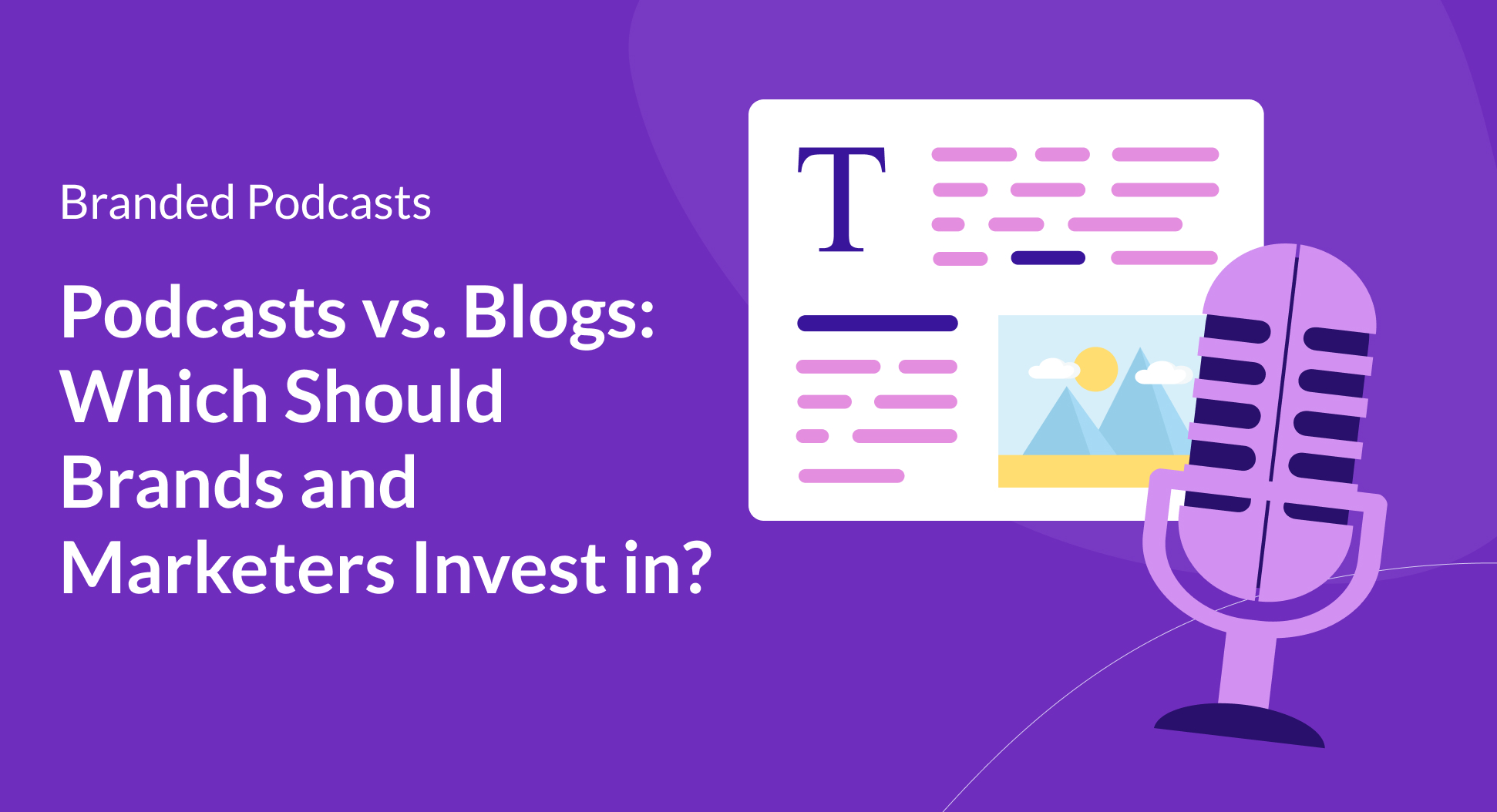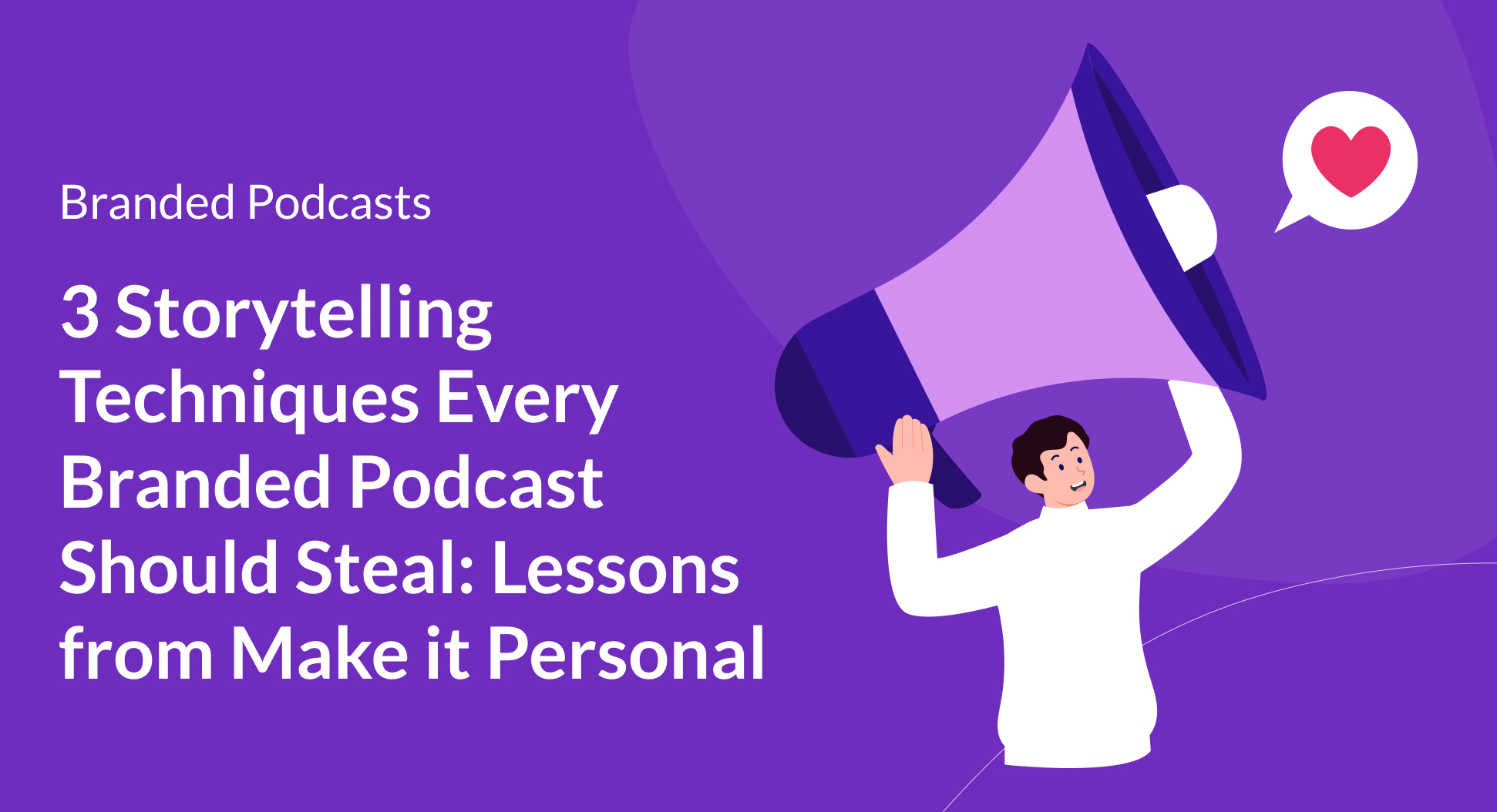Contents
It’s one thing to release a podcast to the world, but it’s another thing to release a podcast that sparks trust with your listeners. If you’re a brand, creating this sense of trust is even more of a necessity.
Let’s look at why this is.
As a brand, you may have a variety of goals for your podcast, really the list can be endless depending on how unique and niche you want to get. Maybe you’re looking to create a podcast for lead generation, thought-leadership, awareness, positive brand association, stakeholder relationships, we could keep going but we’ll end it there.
Whatever your goal is, you want the type of content you release to reflect that goal. For example, if you’re creating a podcast with the goal of thought-leadership and you’re a SaaS marketing tool, maybe you’ll bring on brands who have a specific marketing challenge that they’re looking to solve. When you release this content to podcast listeners, if you don’t have that trust established with them - your content will suffer.
Trust & Credibility
Trust comes down to credibility. If your listeners do not find your brand credible, they’re not going to believe what you say on the podcast, or they’re not truly going to use your show as an educational resource. Maybe they’ll listen to a couple of your episodes but without that credibility, there is no trust, and without that trust, you can be confident that overtime, the listener will drop off.
This is why trust is so important. If you want to keep that listener, you need to make sure that they’re believing what you say and taking it as factual, useful information.
How to Create Trust & Credibility
And then the question becomes, how do you showcase that credibility? There are multiple strategies and factors to keep in mind, let’s dive into a few:
1. Research & Data
You can’t argue facts and statistics. When preparing for an episode, make sure you do thorough research into the subject matter and pull relevant data. This shows the listener that you’re well-informed on the topic.
Make sure to link the source of your data in your shownotes so listeners can explore it for themselves.
2. Guests
The guests that you bring onto your podcast are going to not only be a representation of your show but also your entire brand. Make sure that you’re bringing on credible guests that are either experts in their field or the experiences/stories they share are true and factual.
To ensure this, conduct pre-interviews with your guests to learn more about their expertise and experiences. Throughout this call you can share some of the questions that you’ll be asking them to get an idea of the answers they may provide. Make sure that you take notes during this interview so if you need to fact check any information or statements that the guest provided, you’re able to do so before the official episode recording.
3. Positioning
How you position your podcast is no simple task. Strategically position your podcast and what you discuss on your show to elevate your credibility.
Let’s go back to the example we used with the SaaS marketing tool. Say there was some new marketing tech that has been gaining popularity among marketing executives, it would be useful for your podcast to do an entire episode covering this tech, what it is, how it’s used, how it’s useful to the listener, etc. You can bring on guests who have used it, who its target audience is, or you could even test it yourself and give personal reviews. But through this strategy, you’ve positioned yourself as a thought-leader and expert on this technically. It also shows that you’re in-tune with the industry and knowledgeable about the latest news and updates.
4. Valuable Insights
Aside from stats, facts, and other data, your listeners want to hear your perspective. Throughout the episode or at the end of the episode, share your own thoughts and insights on the topics discussed. Make sure that they’re well thought out, timely, and either actionable or insightful (or both).
As the host, being able to showcase your own expertise is also crucial in establishing that credibility and trust. Overall, having a mix of the research and data as well as opinions and insights is most beneficial.
5. Made a Mistake? Address It.
We’re not perfect, let’s accept it. But when you’re hosting a podcast and you accidentally misquote something, state the wrong resource, an incorrect fact, or whatever it may be, you need to address it once you’ve realized the mistake. Obviously, you want to do as much preparation and research as you can to ensure that these mistakes don’t happen, but when they do make sure that you discuss it in your next episode. Tell your listeners that in a previous episode you stated A when you actually should’ve stated B.
It may be awkward and uncomfortable for you but your listeners will value you taking ownership of the mistake and making the necessary correction. It’s better for you to identify it and solve it rather than leave it and have listeners bring it up to you OR lose some listeners because you’ve lost your credibility in their eyes (or ears).
6. Confidence
And lastly, confidence. Whenever you’re speaking about a topic, speak in a clear, concise, and confident tone. It’s not just what you say that conveys credibility but also how you say it. If you sound unsure of yourself (sometimes even without meaning to), your listeners will catch onto this.
Tips for a confident host:
Slow Down
It’s easy to hit the record button and then the nerves start to creep up. This can make us speak at a lightning speed rate, this is not only annoying for listeners but also hard to follow. Slow down your speech, you may start to feel as if you’re now going at a snail’s pace but we promise when you listen back through the episode, it will most likely be the perfect speed.
Take Pauses
Take pauses in between sentences. Too often we fill our breaks between “ums”, “uhs” and the dreaded, “you know?”. Yes, it can be uncomfortable to get into the habit of letting that silence be there but trust us, you will sound significantly more professional and prepared.
Be Concise
Be concise in your sentences and topics. When speaking, it’s easy to go off on tangents and then you look at the time and you’ve been going on for 10 minutes about a completely irrelevant topic. Let’s put a stop to this now. Unless your podcast is a casual conversation where tangents like this are welcomed and expected by listeners, try to keep yourself on track.






.png)

.png)




.png)
.png)
.png)
.png)